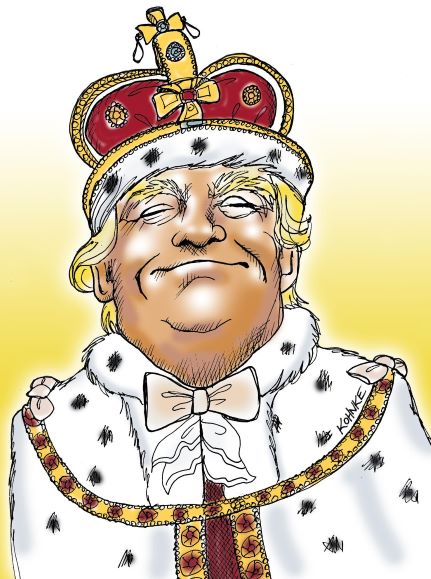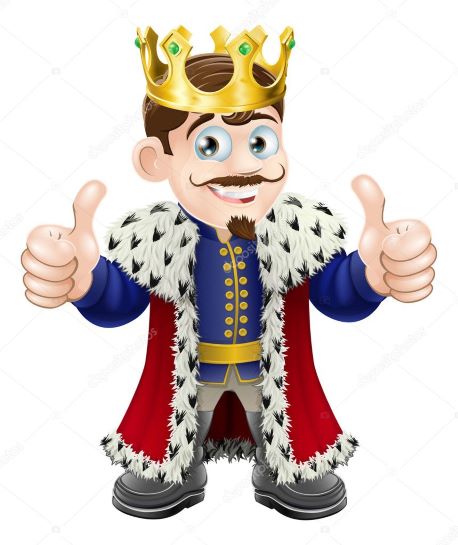A Fable
There once was an ancient and prosperous kingdom in Ireland. It had fine land for planting of crops and grazing of cattle. The river which ran through it fostered trade, both within the kingdom and with those outside the kingdom.
Ancient druids established learning centers in the kingdom – not only as the keepers of religion but also centers for medicine and astrology. When St. Patrick came to the island, he established a monastery in the kingdom, which became yet another source of learning. The kingdom had centers for Celtic brehon law, and centers for bards and seanchi, the tellers of tales and folklore
The kingdom also had a strong and formidable warrior class. This was essential in the ancient world – otherwise whatever you had would be easily taken away.
Warriors had an important job, one that they took very seriously – that is, to protect the people from outside invaders. Outsiders would, from time to time, covet the possessions within the kingdom, and invade the kingdom to take them. This indeed was attempted all too often.
The warriors also kept the peace within the kingdom – for those who violated the brehon laws and committed crimes against their neighbors faced the wrath of the warriors.
The kingdom was led by a succession of kings. For many centuries, the king was chosen among one of the clan chiefs within the kingdom. The chosen king was the one person whom the other clan chiefs could agree, was the best person to lead the kingdom.
To lead the kingdom meant to protect the people from outsider invaders, and keep the peace within the kingdom. For it was only by providing this protection, and keeping the peace, that the people within the kingdom could be left alone, to raise their families, ply their trade, and live the kind of life in which they all wanted.
Some of these kings were better than others, of course, but by and large each of them understood their role and took their responsibility seriously.
Our story takes place when one of these kings died. The clan chiefs assembled to choose a successor. There were many capable chiefs, among which the king would be chosen.
But one chief gained popularity among the people within the kingdom. His name was Donel from the Mámh clan. This was not a particularly powerful clan, but Donel spent a great deal of time traveling throughout the kingdom – during the months preceding the king’s death and for several months thereafter.
He spoke to the people at festivals and feasts, and at banquet halls and bonfires. He reminded the people of how great the kingdom was and how great it could be. He spoke in dire terms about all the threats from the outside world and suggested that he – and he alone – could protect the kingdom from these threats.
When the clan chiefs met to choose a new king, they thought about Donel and the powerful impact he had on the people. And so they selected Donel to be king.
For several years, it appeared that this had been a wise choice – at least to some. The kingdom continued to prosper and, for a time, there were no serious threats to those within the kingdom
But a new threat did emerge. A strange people sailed to the kingdom from across the sea. They were different from the Celts – they spoke a different language, their hair and skin were lighter in color, they looked to different gods, they wore different clothes. And, worst of all, they were ferocious.
When they arrived at a coastal village, they took everything they could take. They took harvested crops, they took cattle, they took tools. They even took people – men, women and children were taken as slaves. These strangers then burned down the village and sailed home, wherever that was.
The few warriors in the village tried to stop them, but they were vastly outnumbered and were soon killed.

Who were these people? No one knew at the time, but they eventually learned – they were the Vikings!
The Vikings had an easy time raiding the village, that they soon returned. They sailed up the river into the kingdom, found new villages, and did the same things they did before – took everything movable, including villagers, burned the village and sailed home. Again, the few warriors within the villages could not stop these ferocious Vikings.
Word soon spread within the Viking world about how easy it was to sail within this kingdom and to do whatever it is that a Viking would want to do. So more Vikings came, again and again, month after month. Vikings even established settlements along the coast, so they would not have to sail home after each raid.
Word spread equally fast across the kingdom – news about the Viking raids were terrifying, and the people clamored for help and protection. The warriors throughout the kingdom gathered to create an army capable of stopping the Viking invasions. These warriors beseeched the king – please lead our army of warriors so that we may stop these Viking invasions.
But King Donel did not – although he was filled with anger.
He was not so much angry that the Vikings were invading his kingdom. Rather, he was angry that the kingdom became transfixed with the Vikings. People were no longer talking about how prosperous they were under his leadership, but about how much danger they were all in because of the Vikings.
King Donel was also afraid – not so much afraid of the Vikings, but afraid that he was losing the adulation of the people. The Vikings were becoming a distraction to the prosperity, and Donel was afraid that he would be blamed. And why, he thought, should he be blamed for the Vikings?
Miraculously, the Viking raids stopped for a time. There were those, including King Donel, who thought the danger had passed.
But the Vikings returned. There was a Viking raid. And then another. And then another.
And the news came to the king. One raid. Now two raids. Now three. And the number of raids continued to go up. And up. Panic returned to the kingdom.
The clan chiefs and warriors gathered before King Donel, begging for a resolution. Each of them saw the problem as the Vikings encroaching more and more into the kingdom, with the number of raids mounting.
Kind Donel, however, saw the problem quite differently. The problem, he thought, was not the Viking raids. The problem was the number of Viking raids.
If everyone would simply stop counting the number of raids, then there would no Viking raids. The number of Viking raids would be zero! And who could panic in the face of zero Viking raids? And who would not be proud of King Donel for eliminating the Viking raids?
The clan chiefs and warriors could not argue with such simple logic, and they were in awe of King Donel for his wisdom.
Word traveled throughout the kingdom that the Viking invasions ceased. People applauded King Donel for the miracle he had bestowed upon the kingdom. King Donel enjoyed the adulation which he believed he richly deserved. For he, and he alone, had ended the Viking raids upon the kingdom.
The people continued to go about their daily business as they had before the Vikings arrived. And all were happy.
Or at least those who lived in villages which were not being raided by the Vikings.
For the Vikings didn’t leave. They never left. They continued to raid. They set up more Viking settlements within the kingdom. There was, indeed, little reason for them not to. The kingdom had, as we said, fine land for planting of crops and grazing of cattle. This, the Vikings thought, was a wonderful place in which to prosper and raise Viking families. And there were no warriors within the kingdom to stop them.
So the kingdom began to shrink in size. This was slow at first, and then more pronounced. And the area within Viking rule continued to grow. Until the Viking settlements grew to include the entire kingdom.
All the while with King Donel telling all who would listen that were no more Viking raids
After all, who was left to count them.
And the moral of the story is?
A good fable should have a moral. The moral is often quite obvious, but we are often told the moral at the end of the fable.

I wrote this fable yesterday (coincidentally, the 4th of July) so that I could tell it at this evening’s podcast, Random Thoughts from County Antrim. I was inspired by our President, who told us why we were experiencing so many new coronavirus cases. It was not because the virus was spreading, but because we were conducting so many virus tests. If we would simply stop testing, our virus count would drop (perhaps to zero) and we would no longer have a virus problem.
If you do not get the moral, then there is not much explaining I can do. You, indeed, would have been one of the people not counting the Viking invasions, but attempting to learn the Viking language.
Mámh, by the way, is pronounced MAH-v and means trump.
